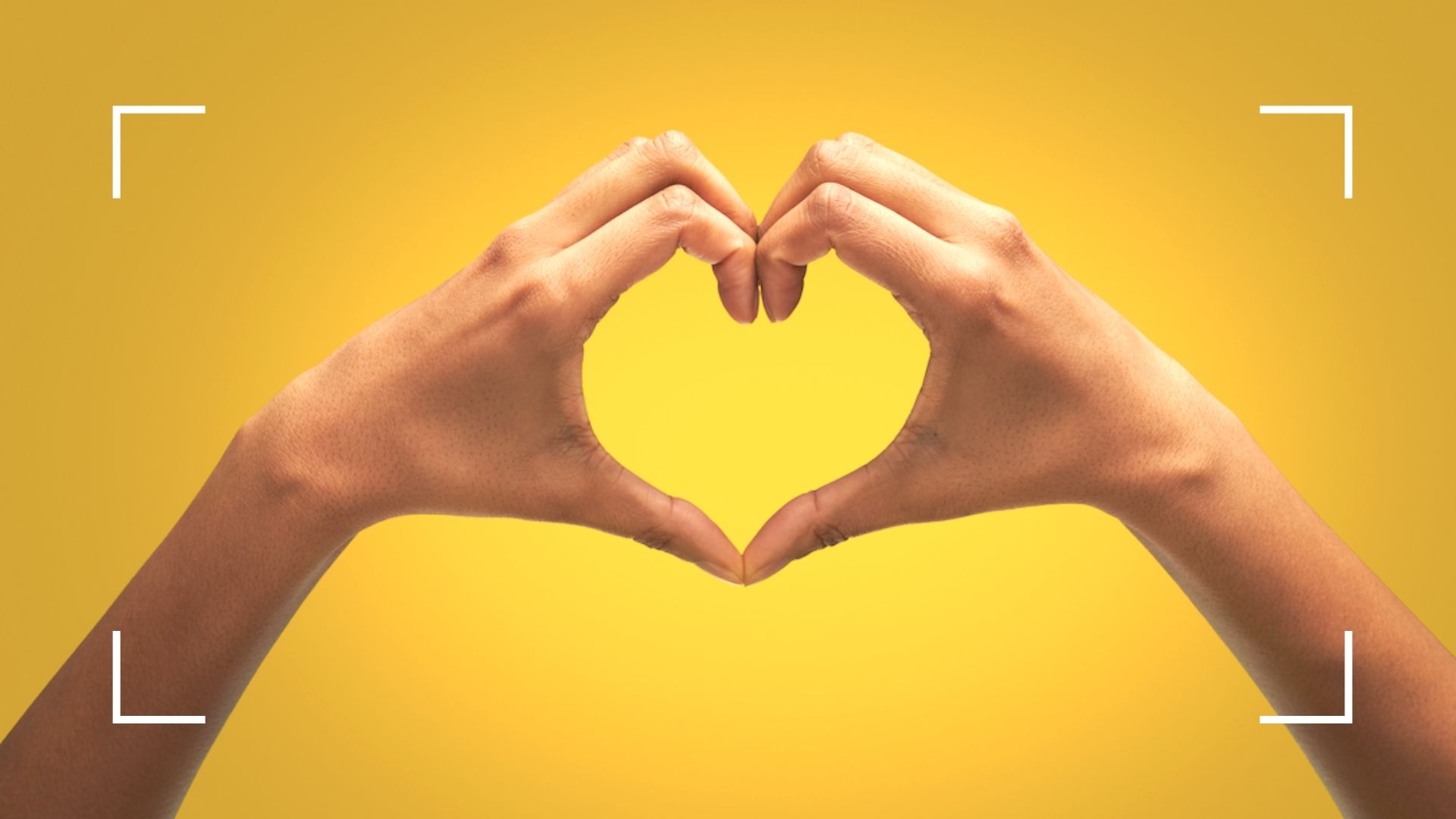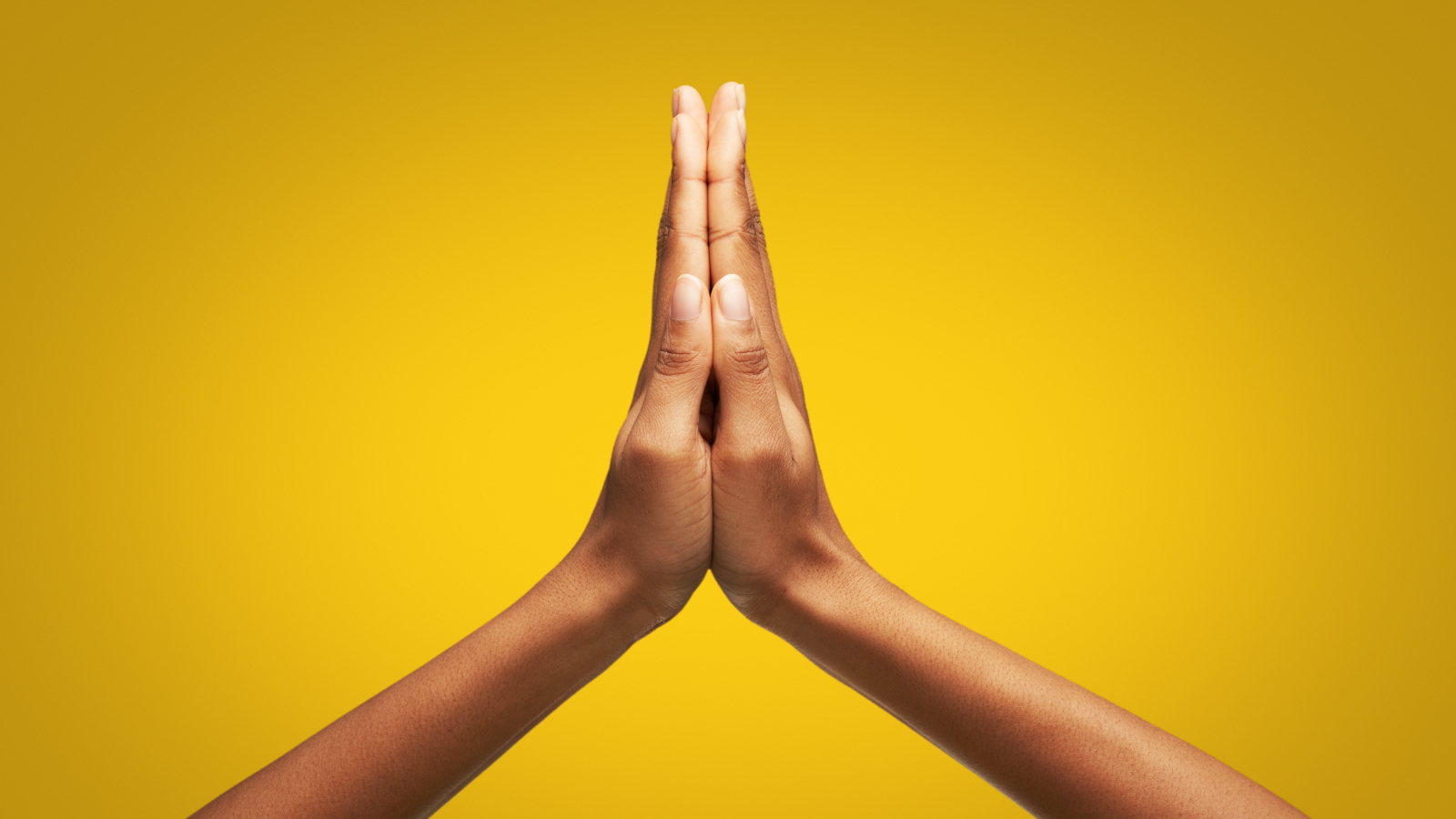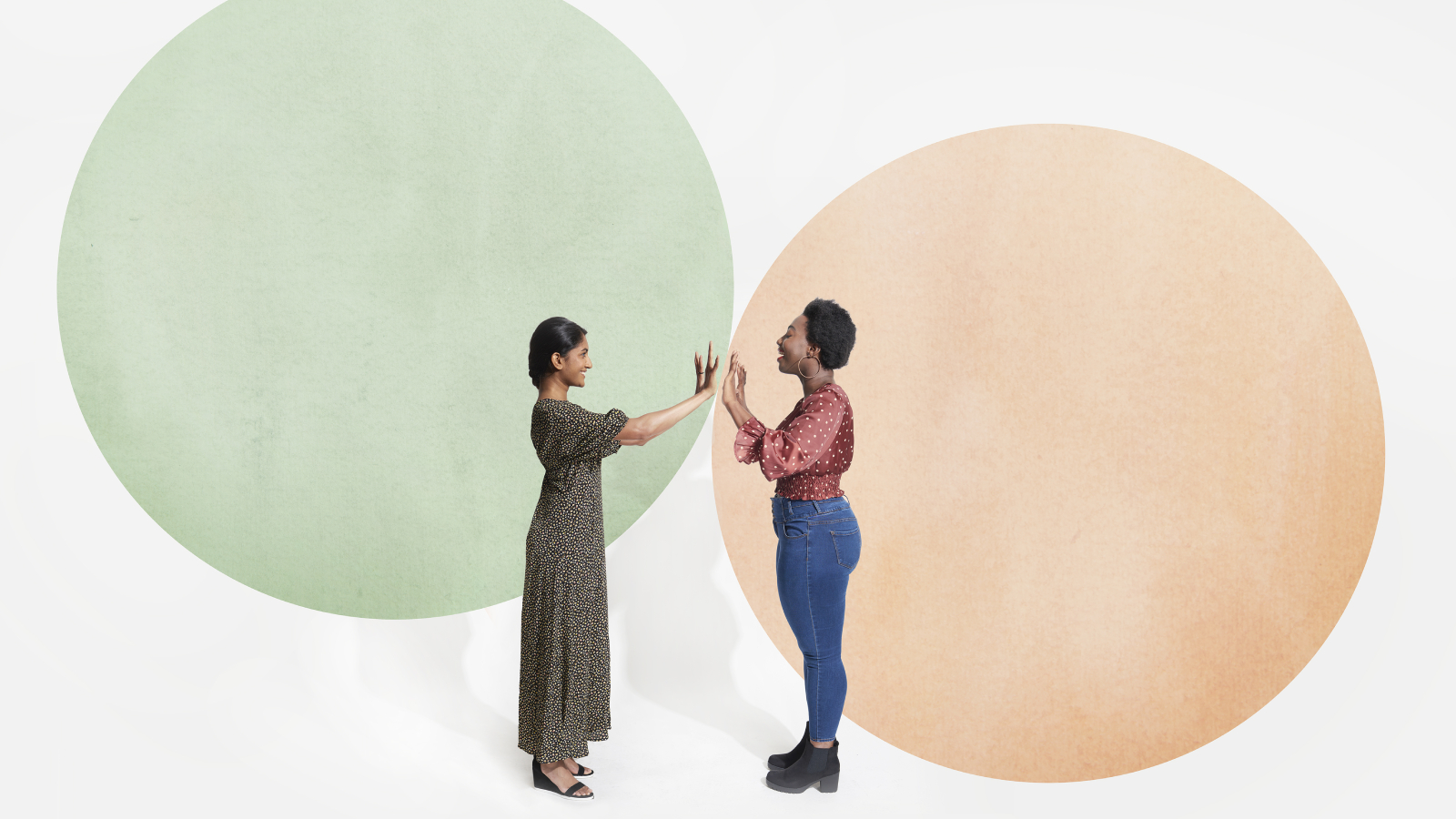Can positive body language boost your confidence? Find out what the experts think
Displaying positive body language can increase your self-esteem and improve your relationships, according to research


Our expressions and gestures are key when it comes to our interactions, and developing positive body language skills can help us become better communicators. A head tilt, subtle eye roll, or a warm smile can help us understand how someone is feeling about us. It can also help our relationships blossom by reassuring the other person that we're listening intently when we show positive body language ourselves.
Positive body language can be defined as nonverbal communication that conveys enthusiasm, warmth, and interest. Understanding this nonverbal communication can be particularly useful in scenarios where we're invested in the outcome of the situation, such as a job interview or an important business meeting. Using it effectively can also help to create a good first impression on dates, whether you’re dipping a toe into the world of dating apps for over 50s, or having some fun with sex apps. We asked the experts about what constitutes 'positive' gestures, why they're important, and how to boost your communication skills with examples of positive body language.
Why is positive body language important?

When communicating, we often depend on body language cues to gauge how others are reacting to what we’re saying. "A lot of research has shown that we make judgments about people based on their nonverbal communication more so than what they’re saying," says Dr Elena Touroni, a consultant psychologist and co-founder of The Chelsea Psychology Clinic.
"We tend to believe the more subtle cues and behaviors rather than what is communicated through language. For example, if you’re looking away when speaking to someone, that can send a strong message, irrespective of what you’re saying. Therefore, portraying more confidence through the use of positive body language can have a very significant effect."
Key areas of positive body language
- Eyes—they say the eyes are the windows to our soul, but they can also convey concentration, discontent, nervousness, and even arousal. Rapid-blinking is well-known to convey stress, and if someone’s gaze is wandering while you’re speaking to them, you can probably assume they’re not listening to you.
- Posture—while a slouching position can covey casualness or disinterestedness, an upright, straight position suggests a willingness to listen and engage with what you’re saying. It can also determine whether or not someone thinks of you as a confident individual.
- Mouth—smiling might be a good indication that someone likes you, but a nervous grin that suggests discomfort often doesn’t involve eye contact. Pursed lips can also be a telltale sign that someone isn’t pleased or they’re disagreeing with something.
- Breathing—if we’re worried, stressed, or excited, our breathing can often quicken. Slower, even breathes are a sign of calm or thoughtfulness. These nonverbal cues can be a big indicator of someone's current emotional state. If you want to learn more about controlled breathing, take a look at our guides on how to breathe better, breathing techniques for anxiety, and how to relax your mind.
- Movements—crossed arms is a well-known sign that someone feels worried or vulnerable, but paying attention to other parts of the body, such as the feet and hands can also help you to display openness and a friendly demeanor.
5 examples of positive body language

Confidence isn't just about your tone of voice or the types of clothes you wear. In fact, whether or not you seem like an outgoing person can come down to a few simple nonverbal gestures. Whether you're wanting to make a good first impression, struggle in social situations, or want to improve your relationships, here are five examples of positive body language that you can incorporate into your interactions.
1. Stand tall
Maintaining an upright posture isn't just good for your physical health, it can also make you appear and feel confident. According to research by Ohio State University, sitting up straight gives you more confidence in your own thoughts. The study also showed that those who sat up straight were more likely to trust in their abilities than those who slouched.
"When it comes to displaying positive body language, we're often in a feedback loop with what our brain thinks is going on and how the people around us are reacting," says life coach and body language expert, Mike Nowak. "If you have a confident posture, then those around you will see you as someone who is confident and they will react to you according to that newly formed perception. Their response will then feedback to you and in turn, you're more likely to see yourself how they do." If you want to fix your posture, our guide might help.
Sign up to our free daily email for the latest royal and entertainment news, interesting opinion, expert advice on styling and beauty trends, and no-nonsense guides to the health and wellness questions you want answered.
2. Practice your eye conact
"Eye contact helps people connect due to oxytocin, the hormone of connection and bonding," says Sophie Zadeh, a nonverbal communication specialist. "Oxytocin is released when we make eye contact, which means it has an anti-anxiety effect which helps to put people at ease and increase positive perceptions. The biggest body language myths are that eye direction and less eye contact are indicators of deception. It’s normal to look away—left, right, up, or down—during a conversation, for many reasons, such as emotion, recollection, or simply minimizing distractions."
According to a study by Northeastern University, people who maintain eye contact are often perceived as more intelligent. If you're anxious or worried about how the person talking to you might respond, holding their gaze might feel a little intimidating, but there are ways you can get around it.
"Sometimes, less confident or introverted people make less eye contact, but not always," says Zadeh. "This could be connected to an increased need to look away when internally processing what they are about to say. My advice would be not to worry about the amount of eye contact you make unless people have said you make too much or too little. If you still believe you struggle, there could be underlying reasons. For example, some people with autism find making eye contact difficult due to the way they process faces internally. If there isn’t an underlying issue, consciously practicing making more eye contact over time helps."
A study from the Journal of Psychological Science, also revealed that maintaining strong eye contact can help you resist influence and persuasion. Something to bear in mind next time a cold caller knocks.
3. Stay open
You may have heard of the phrase 'talking with your hands', used to describe people who gesticulate while speaking. Well, research shows this can be a good thing, as we tend to answer questions faster if the person speaking makes hand gestures.
"Generally speaking, the more open gestures a person makes with their hands and their body, the more it means they are feeling comfortable and open to engage with you," says Dr Touroni. "On the other hand, crossing your arms can signify anger or someone feeling threatened and wanting to protect themselves."
Body language experts recommend aiming to lean forward if you want to make it clear that you're engaged with a discussion. "Not only are you showing that you're receptive to what the other person is trying to convey, but in turn, that person will see you as receptive and attentive," says Novak.
4. Take up space
A telltale sign of an anxious person is someone who tries to make themselves appear smaller. Being confident doesn't mean you have to be the biggest or loudest in the room, but it does mean that you need to be comfortable in your space and avoid shrinking into the corner.
"To display confidence, we’d need to emulate the positive body language of confident people: an upright and an open posture that is relaxed," says Zadeh. "Confident people also display less blocking behaviors, such as arms crossed over their chest and fewer stress behaviors such as fidgeting, fiddling, and self-soothing. Typically, when we're not confident and are dealing with negative emotions, the body contracts inwards."
Displaying a certain degree of openness is also really important if you want to make a positive impression on someone. "The best way to do this is to become aware of your body language and realize what you do when you feel stressed or nervous," says Zadeh. "Whether it’s rubbing your hands together, touching your face, or swaying from foot to foot, you can learn to control or quit the negative behaviors when you're aware of how you behave."
5. Control your breathing
Short, shallow breathes can be an indicator that you're nervous, worried, or stressed, none of which make for a confident demeanor. Taking the time to practice mindful, calming breathing, not only helps you appear more confident but will also help to lower your cortisol (stress) levels and put you in a positive frame of mind.
Try diaphragmatic breathing to help you control your breathing. Place one hand on your tummy and the other on your chest, then, take one long exhale. At the end of your exhale, close your mouth and inhale through your nose. Repeat four times, staying mindful of the rising and falling of your hands as you breathe in and out. You could also take a look at our guide to the Wim Hof method to learn more about controlled breathwork.
w&h thanks Dr. Elena Touroni, a consultant psychologist and co-founder of The Chelsea Psychology Clinic, Sophie Zadeh a nonverbal communication specialist and life coach, and body language expert Mike Nowak for their time and expertise.
With five years of experience working across print and digital publications, Stacey is a journalist who specializes in writing about the latest developments in health and wellbeing. She has also previously written for Women’s Health, Get The Gloss, Fit & Well, Stylist, and Natural Health magazine, covering current health trends and interviewing leading figures in the wellness space.
When she’s not talking to health experts, you can probably find her hiking somewhere in the Welsh countryside or near the coast. Her favorite two ways to switch off are a Pilates class and a glass of wine with a home-cooked meal.
